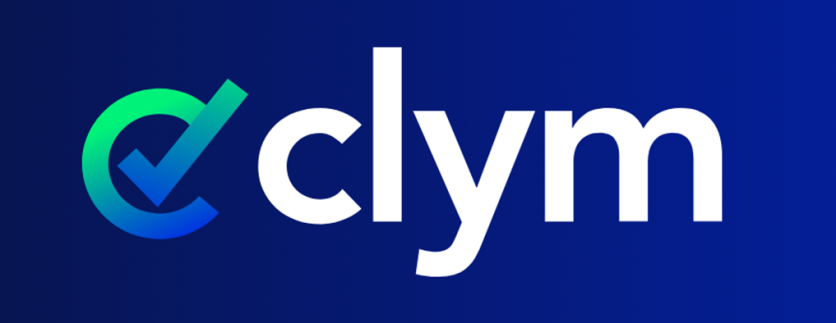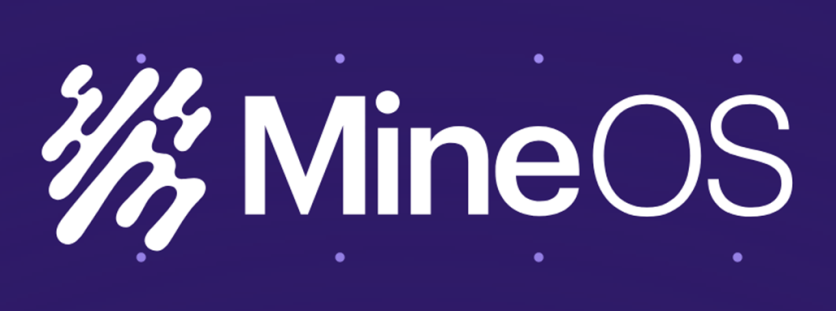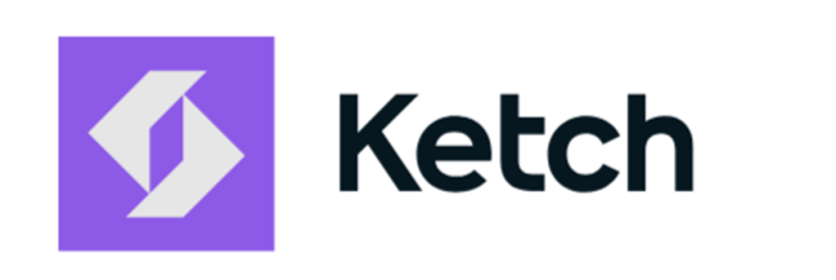As data privacy regulations continue to tighten, businesses are under increasing pressure to honor user rights, such as accessing, modifying, or deleting personal data.
This process is called a Data Subject Request (DSR), and handling these requests efficiently is crucial for companies to stay compliant with laws like GDPR and CCPA. Without the right tools, managing DSRs can be time-consuming and complex, especially for businesses that handle large volumes of user data.
Data Subject Request solutions help automate and simplify this process, making it easier for companies to respond quickly and securely. DSR solutions are designed to streamline and automate the process, enabling companies to respond promptly and securely. In 2025, a number of standout tools offer a combination of usability, security, and efficiency. In this article, we'll highlight the top 5 Data Subject Request solutions of 2025 to help businesses find the right fit for their compliance needs.
What Are Data Subject Request Solutions?
Data Subject Request (DSR) solutions are software tools that help businesses manage user requests related to personal data. These requests can include accessing, correcting, deleting, or transferring personal information, as required by privacy laws like GDPR (General Data Protection Regulation) and CCPA (California Consumer Privacy Act). Without a proper system in place, handling DSRs manually can be overwhelming, especially for companies with large databases.
DSR solutions automate and streamline the entire process, ensuring that requests are handled accurately, securely, and within legal time limits. These platforms typically include features such as identity verification, request tracking, secure data delivery, compliance reporting, and regulation-based response templates tailored to various types of requests.
By leveraging these tools, businesses can minimize human error, save valuable time, respect customer choices, and comply with data privacy regulations, making data privacy a seamless and efficient part of their daily operations.
How Do Data Subject Request Solutions Work?
Data Subject Request (DSR) solutions automate the process of handling user requests related to their data. Instead of relying on manual tracking and communication, these tools ensure requests are processed quickly, securely, and in compliance with privacy laws. Here's how a typical DSR solution works:
- User Submits a Request – A customer fills out a DSR form on a company's website or portal, requesting access, correction, deletion, or transfer of their personal data.
- Identity Verification – To prevent fraud, the system verifies the user's identity using methods like email confirmation, ID checks, or multi-factor authentication.
- Request Processing & Tracking – The tool automatically routes each request to the appropriate person responsible for data privacy—such as a Data Protection Officer (DPO) or a designated team member—while tracking its progress and ensuring it's fulfilled within the legally required timeframe.
- Secure Data Delivery or Deletion – Once a request is approved, the system provides a secure download link for the requested data or flags the relevant records for deletion or update. While full automation may benefit companies handling large volumes of requests, Clym offers a more practical approach for most organizations—delivering clear, actionable requests through a structured system that reduces complexity and guides internal teams to take the proper steps.
- Audit & Compliance Reporting – The solution logs every request and all related communications, with detailed timestamps for each action. This ensures businesses maintain a clear audit trail, stay compliant with data privacy laws, and can easily generate reports for audits or legal documentation.
Where to Use Data Subject Request Solutions
Data Subject Request (DSR) solutions are essential for businesses that handle personal data, especially those operating in industries with strict privacy regulations. These tools help manage and automate user data requests efficiently. Here are the key areas where DSR solutions are most helpful
- E-Commerce & Retail – Online stores and marketplaces collect customer data for transactions, marketing, and personalization. DSR solutions help them handle requests for data access, deletion, or modifications securely.
- Finance & Banking – Financial institutions manage sensitive personal and transaction data. DSR tools ensure they comply with GDPR, CCPA, and other financial data regulations while keeping customer information secure.
- Healthcare & Insurance – Hospitals, clinics, and insurance companies store highly sensitive health records. DSR solutions help manage patient requests while maintaining HIPAA and GDPR compliance.
- Technology & SaaS Companies – Software platforms, cloud services, and apps collect vast amounts of user data. DSR solutions help them process requests efficiently, reducing the risk of data breaches or non-compliance penalties.
- Education & Government Institutions – Schools, universities, and government agencies store student and citizen data. DSR tools assist in handling public data requests while following legal frameworks like FERPA or GDPR.
Any business dealing with customer, employee, or user data can benefit from a DSR solution, ensuring compliance, security, and trust with data subjects.
Top 5 Data Subject Request Solutions of 2025
1. Clym

Overview
Clym simplifies the way businesses handle Data Subject Requests (DSRs), including access, deletion, correction, and "Do Not Sell or Share My Personal Information" requests under regulations like the CCPA. Through a centralized dashboard, teams can track the status of each request, receive automated notifications, and stay organized throughout the process. To further streamline operations, Clym includes ready-to-use response templates aligned with various privacy laws, helping reduce manual effort and support consistent, regulation-aware replies.
However, DSR management is just one part of what Clym offers. As an all-in-one digital compliance solution, Clym also helps businesses with tools for cookie-consent management, accessibility widgets, whistleblowing, content takedowns, wiretapping, and much more. Its modular setup allows companies to address multiple areas of digital compliance in one place, adapting to evolving global regulations such as GDPR, CCPA, ADA, VPPA, and wiretapping laws.
Outstanding Product Features
Clym offers a suite of tools designed to streamline compliance efforts across multiple regulatory domains:
- Cookie Consent Management – Automates cookie detection, categorization, and compliance with frameworks like GDPR and CCPA. Featured in the Top 5 Best Cookie Tracking Software for 2025.
- Web Accessibility Solutions – Clym combines accessibility features and cookie consent management into a single widget, enhancing user experience while supporting compliance with standards like WCAG and ADA. Visitors can also report accessibility issues through Clym's Accessibility Issue Reporting tool, providing businesses with a clear communication channel and a centralized system to track and respond to feedback.
- Recognized in the Top 5 Best Accessibility Software for 2025.
- Whistleblowing Compliance – Secure, anonymous reporting channels for workplace misconduct.
- Data Subject Request (DSR) Management – Automates GDPR and CCPA data requests, allowing businesses to handle access, deletion, and modification requests efficiently.
- Content Takedown Management – Enables businesses to process and track online content removal requests, preventing unauthorized use of copyrighted materials.
With automated workflows, built-in regulatory insights, and real-time tracking tools, Clym brings multiple compliance functions into a single, centralized platform.
To explore the full range of their data privacy, accessibility, and extended compliance tools, visit their website to learn more about these features.
Pros and Cons
Pros:
- Comprehensive Compliance Coverage – Supports 150+ global regulation templates across privacy, accessibility, and security.
- All-in-One Digital Compliance Solution – Eliminates the need for multiple compliance tools by integrating cookie consent, DSR management, whistleblowing, and accessibility reporting, among others.
- Built-in Identity Verification – Supports secure age gating and user verification to help businesses meet requirements for age-restricted content and identity-sensitive requests.
- Customizable & Scalable – Businesses can tailor the platform to meet their specific regulatory needs.
- Automated Updates – Adapts to new laws and regulatory changes without requiring manual intervention.
- User-Friendly – Designed for ease of use, even for businesses without dedicated legal or compliance teams.
Cons:
- Initial Learning Curve – While user-friendly, businesses may require some time to explore all available features.
- Advanced Features May Require Upgrades – Some tools, such as geo-restriction and bounty hunting, are available only in higher-tier plans.
2. DataGrail

Overview
In today's evolving digital landscape, businesses face increasing challenges in managing data privacy compliance. DataGrail is a leading data privacy platform that helps companies automate and streamline data subject requests (DSRs), consent management, and privacy risk assessments to comply with regulations like GDPR, CCPA, and CPRA.
With over 2,000 integrations, DataGrail ensures seamless connectivity across an organization's tech stack, reducing manual work, minimizing compliance risks, and enhancing brand trust. Its AI-powered automation helps businesses efficiently process data access, deletion, and opt-out requests, saving time and resources.
Outstanding Product Features
- Request Manager – Automates data subject access, deletion, and opt-out requests, reducing manual workloads.
- Identity Verification – Uses Smart Verification™ to authenticate user identities before processing requests.
- Data Discovery & Mapping – Provides full visibility into where personal data resides across internal and third-party systems.
- Consent Management – Ensures businesses stay compliant with evolving privacy regulations by managing user consent across platforms.
- Privacy Risk Assessments – Auto-populates compliance assessments, reducing risks and keeping businesses up to date with privacy laws.
Pros and Cons
Pros:
- Automated Privacy Workflows – Eliminates manual processing of data requests, reducing human error.Seamless Integration – It connects with thousands of third-party apps, ensuring comprehensive privacy management.
- Scalable Solution – Suitable for businesses of all sizes, from startups to enterprises.
- Stronger Consumer Trust – Faster, more reliable compliance processes improve brand credibility.
Cons:
- Learning Curve – Some advanced features may require training for complete optimization.
- Custom Features May Cost Extra – Advanced customization may require additional investment.
3. MineOS

Overview
Handling Data Subject Requests (DSRs) is becoming increasingly complex due to evolving privacy laws like GDPR and CCPA. With over 20 U.S. states implementing new regulations, businesses face rising DSR volumes and compliance challenges. MineOS provides an automated, no-code solution that streamlines DSR processing across various systems, reducing manual work, compliance costs, and response time.
With its Infinite Integration Builder, MineOS eliminates the need for static integrations by allowing businesses to connect any system in their stack seamlessly. This ensures that privacy operations remain scalable, flexible, and fully compliant with changing laws.
Outstanding Product Features
- No-Code Integration Builder – Enables businesses to connect any system without engineering resources.
- Automated DSR Handling – Processes data access, deletion, and modification requests with minimal effort.
- Privacy Portal – Provides a branded, user-friendly experience for customers to manage their privacy rights.
- Compliance with Multiple Regulations – Adapts to GDPR, CCPA, CPRA, and other emerging privacy laws effortlessly.
- Custom API Logic – Allows organizations to configure API connections visually based on their specific workflows.
Pros and Cons
Pros:
- No-code automation simplifies DSR processing.
- Flexible integration with any system, including legacy databases and HR platforms.
- A user-friendly privacy portal enhances consumer trust and brand value.
Cons:
- Initial setup may require custom configurations for complex workflows.
- Advanced features may be more suitable for mid-to-large enterprises.
4. Ketch

Overview
Managing Data Subject Requests (DSRs) manually is time-consuming and costly for businesses facing evolving privacy laws like GDPR and CCPA. Ketch is a leading data privacy automation platform that simplifies DSR intake, processing, and fulfillment with a no-code workflow builder. By automating privacy tasks, Ketch helps businesses reduce compliance costs, improve efficiency, and build trust with consumers.
With its drag-and-drop workflow designer and smart automation, Ketch adapts to global and regional privacy laws, ensuring seamless data rights management. Recognized as a top-rated consent management platform on G2, Ketch empowers businesses to stay compliant while enhancing customer experience.
Outstanding Product Features
- Automated DSR Handling – Streamlines data access, deletion, and modification requests without manual effort.
- No-Code Workflow Builder – Enables businesses to customize privacy workflows without engineering expertise.
- Smart Routing & Decision Logic – Directs requests to appropriate teams based on customer type and regional laws.
- Native Data Mapping Integration – Connects directly to internal and external data systems for accurate request fulfillment.
- Customizable Privacy Portal – Provides a branded, user-friendly experience for consumers managing privacy requests.
Pros and Cons
Pros:
- No-code automation makes integration easy.
- Custom workflows adapt to different compliance needs.
- Seamless data mapping ensures thorough request fulfillment.
Cons:
- Advanced API features may require developer input.
- More suited for mid-to-large enterprises managing high DSR volumes.
5. Transcend

Overview
As privacy regulations like GDPR and CCPA become more complex, businesses need automated solutions to handle data subject requests (DSRs) efficiently. Transcend is a leading DSR automation platform that enables companies to delete, modify, or return user data seamlessly. Unlike legacy tools that rely on manual workflows, Transcend fully automates DSR fulfillment, reducing compliance costs, improving efficiency, and eliminating human error. With built-in security, single sign-on, and end-to-end encryption, Transcend ensures that privacy operations remain secure, scalable, and compliant across global regulations.
Outstanding Product Features
- DSR Automation – Automatically processes data deletion, access, and modification requests without manual intervention.
- Privacy Center – Provides a user-friendly portal where customers can control their data preferences.
- Data Inventory & Silo Discovery – Uncovers structured and unstructured data across an organization's tech stack.
- Risk Reduction & Compliance – Adapts to regional laws while securing customer data with encryption.
- Seamless Integrations – Connects with various business systems for real-time compliance tracking.
Pros and Cons
Pros:
- 99% automation reduces manual privacy request handling.
- Enhanced security with encryption and flexible key management.
- Customizable workflows adapt to business-specific privacy needs.
Cons:
- Advanced automation may require initial setup and integration.
- Best suited for mid-to-large enterprises handling high DSR volumes.
Conclusion
With privacy laws tightening, businesses need fast, secure, and automated ways to handle Data Subject Requests (DSRs). The top DSR solutions of 2025 help companies stay compliant, reduce manual work, and protect user data. Each tool offers unique features, from Clym's all-in-one compliance platform to Transcend's full automation. By choosing the right DSR solution, businesses can streamline privacy requests, improve security, and build customer trust while staying ahead of evolving regulations.


![Apple Watch Series 10 [GPS 42mm]](https://d.techtimes.com/en/full/453899/apple-watch-series-10-gps-42mm.jpg?w=184&h=103&f=9fb3c2ea2db928c663d1d2eadbcb3e52)


